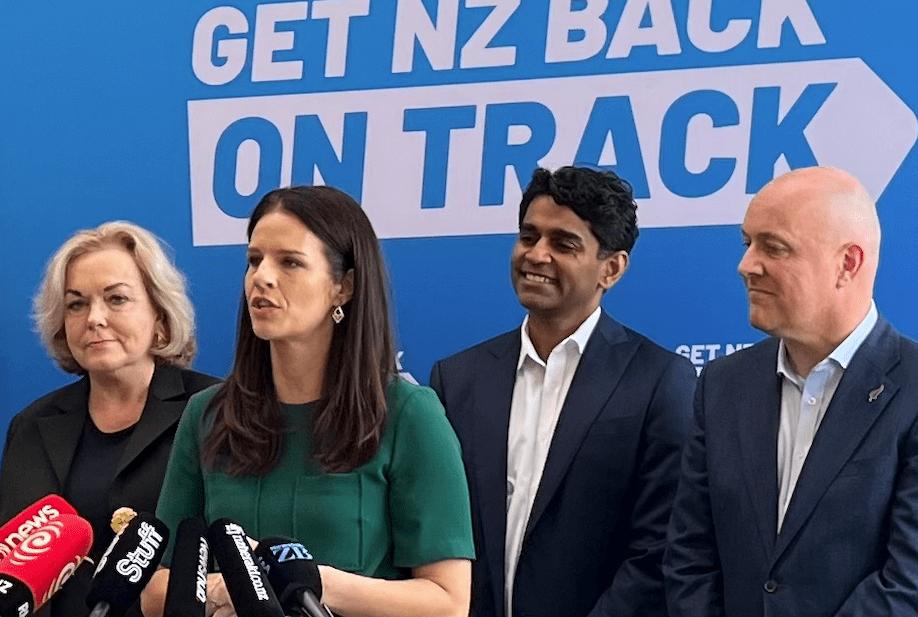In the bright and chirpy startup offices of Future House in Parnell, Christopher Luxon rolled out the welcome mat for?National’s new tech visa targets.
In one of the venue’s gleaming &development spaces,’ the National leader?proposed that New Zealand brings in the greatest minds in tech to a space?with the ※most limitless growth potential§: the tech industry.
※We need more innovation, we need faster growth in high-value sectors like tech,§ he said.
The party’s immigration spokesperson Erica Stanford, supported by spokesperson for science, technology and innovation Judith Collins, unveiled three new visa categories to encourage experienced overseas tech talent into the sector.
The first is the International Graduates Visa, which invites recent graduates of the ※world’s leading universities§ to stay for up to three years.
The second, the Global Growth Tech Visa, is for a highly skilled, specialised and experienced individual (aged 45 and under) who has worked in one of the top 200 tech firms in the world and earnt?over NZ$400,000 a year. This option, which is ※residence class§ according to the party’s package, offers permanent residence after the applicant has met their &time in country’ requirements.
Stanford referred to this visa as the ※red carpet visa§ with only 250 spots available in its first year.
Last, but not least, is the Digital Nomad visa, open to someone?able to work for overseas companies, anywhere in the world - anywhere with a high speed internet, a good view and an attractive lifestyle.
During that?visa’s three year timeframe, Stanford wanted?these digital nomads to work remotely, travel, enrol their kids in school and spend money.
The visa is targeted at highly skilled young people, young people who she hoped would settle?in this country.

Stanford framed the?new visas as National trying something different. Innovation, she said, was something we hadn’t seen in the past six years.
Collins spoke encouragingly about the tech sector’s potential for growth.
※We are something of a start-up nation and we need to become a scaled-up nation,§ she said.
One question from the media asked if the Global Tech Growth visa was ※special treatment for the wealthy§. Luxon said the country’s economy was ※anaemic§ and we needed to ※turn the quality up§ - perhaps with some of some of the visa’s &red carpet’ glamour.
The tax status of the Digital Nomad visa was also a sticking point, with questions over whether the nomads would be exempt from the party’s foreign buyer tax once they claimed the visa’s residency option.
Announced two weeks ago as part of National’s tax package, the tax would allow foreign buyers to buy a home over the price of $2m, but with a 15 percent government tax on the sale.
Luxon said he was ※absolutely confident§ in the foreign buyers tax and would welcome a wealthy tech worker to buy a luxury home in New Zealand and then to collect that tax. But in terms of a foreign entrepreneur becoming a resident, he said the innovation and networks they would bring would be worth it.
While invited tech founders thanked Luxon for this favourable new visa policy, media also took the chance to challenge Luxon on other campaign issues of the day.
One journalist, referring to Act’s commitment to axe approximately 10,000 government jobs to pay for tax cuts, asked Luxon how many would lose their jobs under Nationals tax plan. Luxon said the party wanted to have a 6.5% cost cut across government agencies and it was up to the individual agencies to allocate any job losses.
Which aligned with what he said at the start of the announcement:
※National understands that innovation and growth doesn’t come from government per se it comes from the hard work, the innovation, the risk taking, from the entrepreneurs in the private sector.§


